netgear
Latest
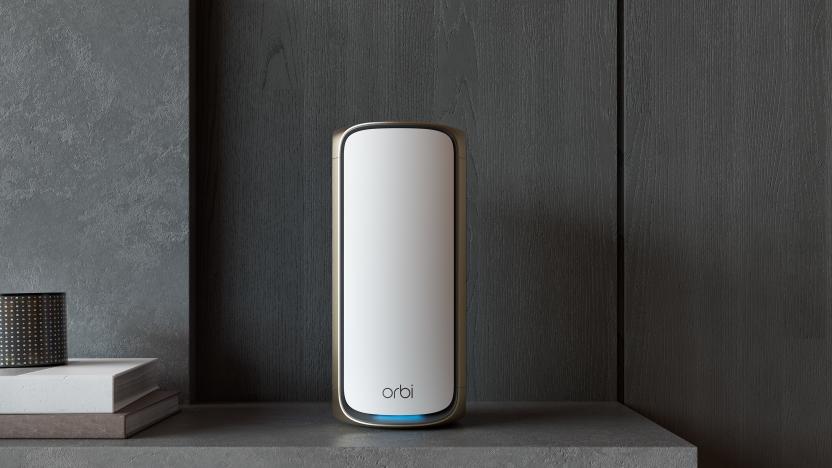
Netgear’s new wallet-busting Orbi router has just about every feature imaginable
Netgear just announced a new flagship router, the Orbi 970, that’s absolutely brimming with features. The router supports the newest Wi-Fi 7 wireless standard and ships in a quad-band format, so it also handles other streaming bands like Wi-Fi 6, 5 and 2.4. It boasts speeds up to 27 Gbps and “high-performance antennas” for 360-degree coverage, with mesh satellite devices available for an even larger wireless footprint.
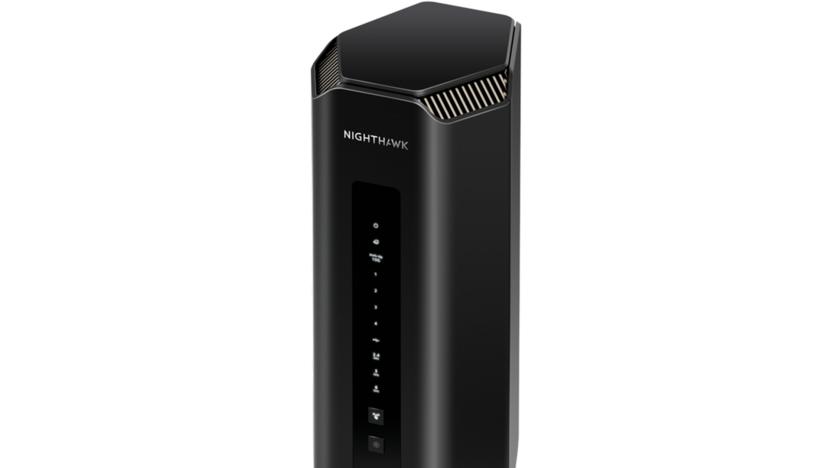
Netgear's first WiFi 7 router offers extra-low latency for gaming
Netgear has unveiled its first WiFI 7 router, and raw speed isn't the only hook — it also promises extremely low latency.
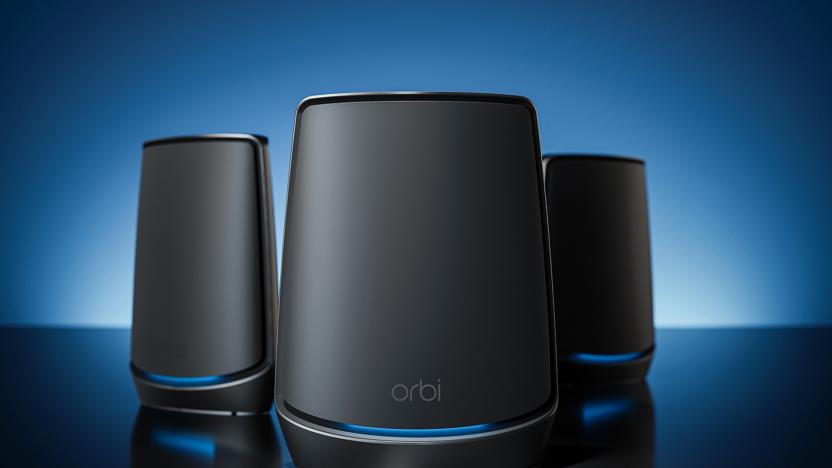
Netgear’s Orbi 860 mesh routers are a more affordable option for multi-gig internet
Netgear has released new Orbi routers with 10Gbps Ethernet, but without the extra-high price tag of earlier models.
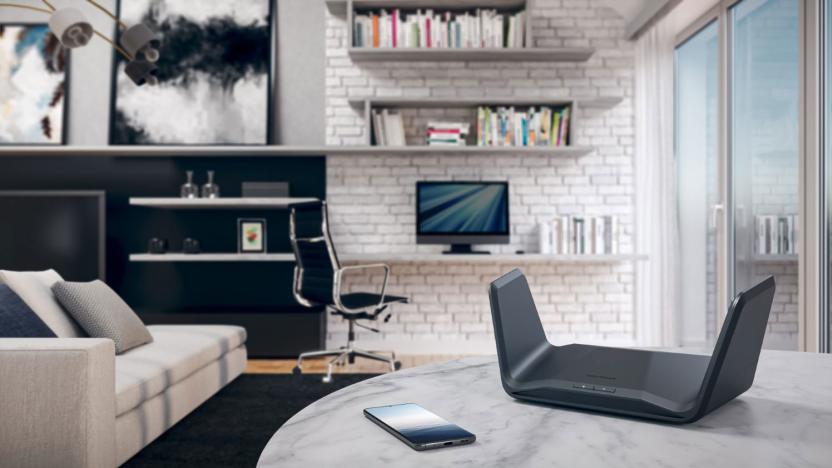
Netgear expands WiFi 6E router lineup with two new options for 2022
Netgear is adding middle-tier devices to broaden its WiFi 6E appeal.

A bunch of robot vacuums and smart home gadgets are on sale for Black Friday
Here are the best smart home and kitchen deals for Black Friday, including discounts on Instant Pots, robot vacuums, smart lights and more.
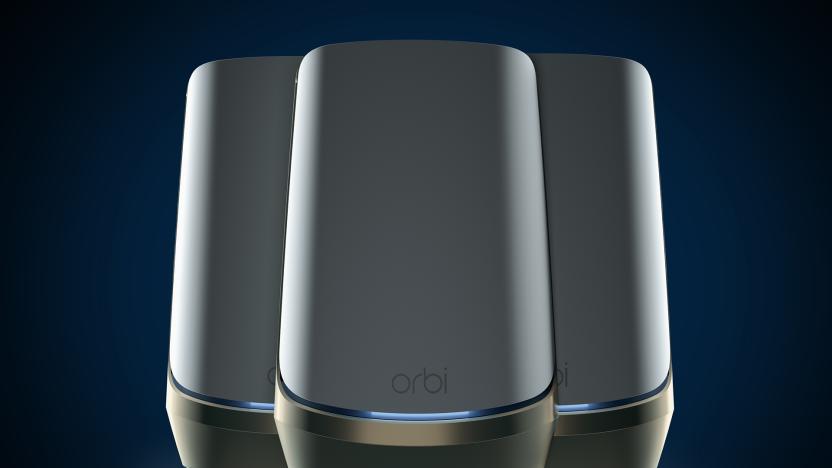
Netgear's quad-band WiFi 6E mesh router will set you back $1,500
Netgear has unveiled the 'first' quad-band WiFi 6E mesh router, but that bleeding-edge networking will cost you dearly.

Netgear's 5G mobile hotspot router with WiFi 6 is now available for $700
If you often need to tether to get internet, Netgear has a very interesting new product — if you can afford it.

The best gaming deals we could find for Prime Day
If you're looking to upgrade your gaming setup, check out some of the Prime Day 2021 deals on game controllers, headsets, keyboards, mice and more.
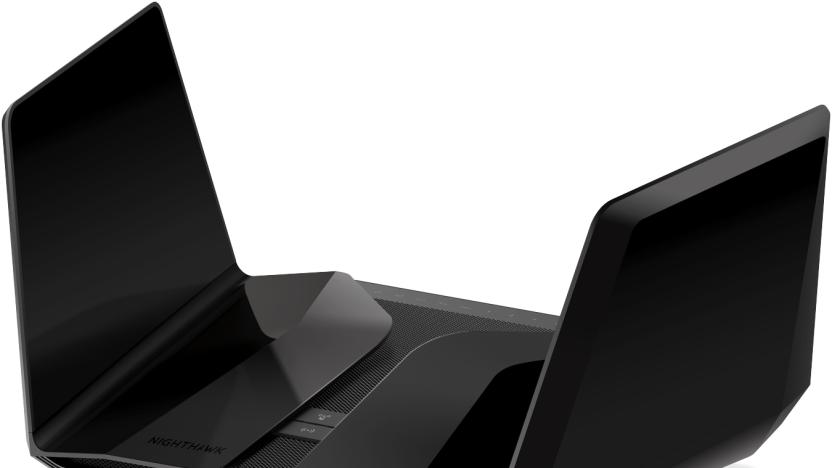
Netgear's first WiFi 6E router offers plenty of bandwidth for streaming
Netgear's new Nighthawk RAXE500 is the company's first WiFi 6E router, which will use the 6GHz spectrum, granting it access to 59 more channels of bandwidth.
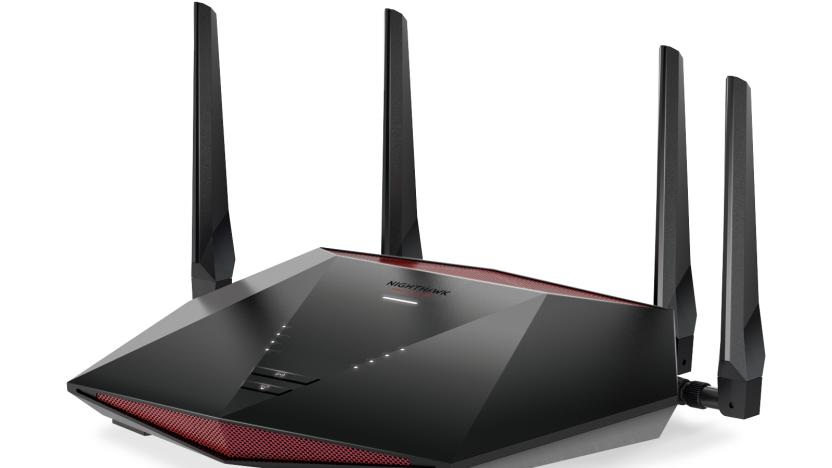
The star of Netgear’s first WiFi 6 gaming router is its software
Netgear's first WiFi 6 gaming router lets you fully customize your connection for the best internet experience during a match.
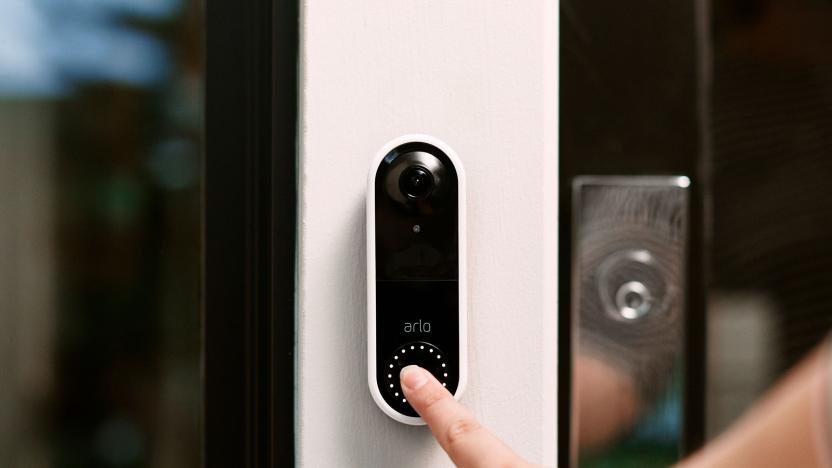
Arlo Video Doorbell now takes commands from Google Assistant
Arlo's Video Doorbell now works with Google Assistant, not just Alexa, giving you a choice of how to answer your doorbell.
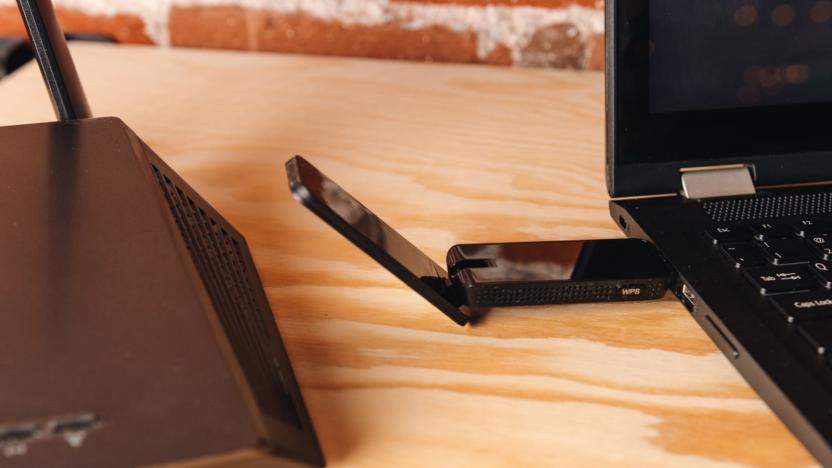
The best USB Wi-Fi adapters
By Joel Santo Domingo This post was done in partnership with Wirecutter. When readers choose to buy Wirecutter's independently chosen editorial picks, Wirecutter and Engadget may earn affiliate commission. Read the full guide to USB Wi-Fi adapters. Plugging in a USB adapter is one of the easiest ways to add 802.11ac Wi-Fi access to a desktop PC, especially if you don't want to (or are unable to) install an internal card yourself. After 50 hours of testing 20 models against a high-end laptop's internal Wi-Fi, we are confident the TP-Link Archer T4U is the best USB Wi-Fi adapter for most people. The TP-Link Archer T4U is inexpensive, had excellent throughput performance all over our test home, didn't drop connections while we were testing, has a two-year warranty, and works with Linux computers, Macs, and Windows PCs. The TP-Link Archer T2U Plus is a little bulkier than the Archer T4U because of its six-inch external antenna and it didn't perform as well at long range, but it's still very good and was the only sub-$25 adapter to complete all of our tests. It has an identical two-year warranty and is just as compatible with Macs and Windows or Linux PCs. The Netgear Nighthawk A7000 is a bulky USB adapter that costs almost three times as much as the budget Archer T2U Plus. However, the trade-off is worth it if your broadband connection is faster than 100 Mbps or so. It posted our top throughput scores all over our test home, significantly outperforming the laptop's internal Wi-Fi adapter.
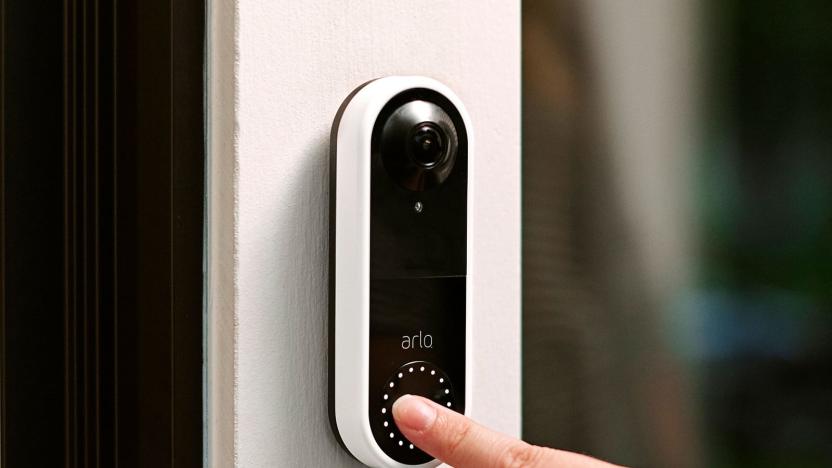
Arlo will require two-step sign-ins for its smart home devices
Arlo is following the leads of Nest and Ring in requiring tighter security for its smart home devices. It's warning customers that it'll require two-factor authentication for accounts by the end of 2020. As it explained in a support guide, you'll have to either respond to a push notification or a less secure text message whenever you sign in with a new device. Email security codes will be available as an "automatic back-up option."
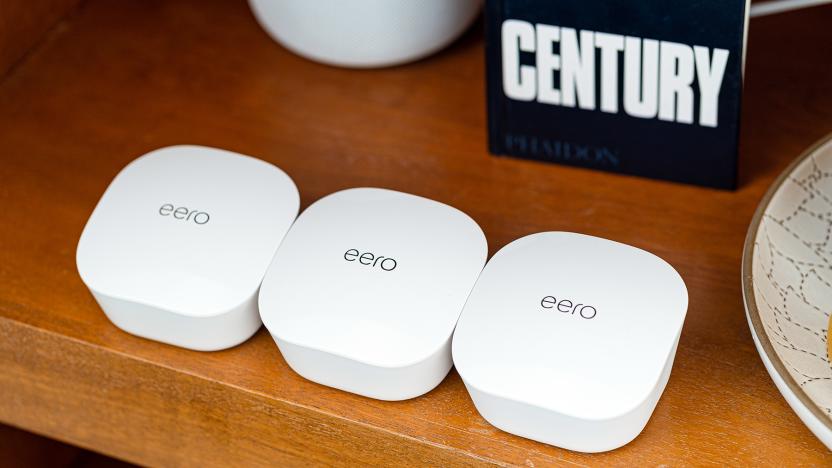
My quest to fix my terrible home WiFi
When I was young -- in high school or so -- my sister and I had a system worked out. Our Comcast cable internet service routinely seemed to flake out, so she and I would take turns running downstairs to the router, unplugging it, waiting for what felt like the most torturous 30 seconds possible and plugging the router back in. It was obnoxious enough back then, but now that our respective homes are filled with even more hardware clamoring for internet connections, the idea of half-assing a home network seems even tougher to endure. And yet, that's exactly what I've been doing, even now.
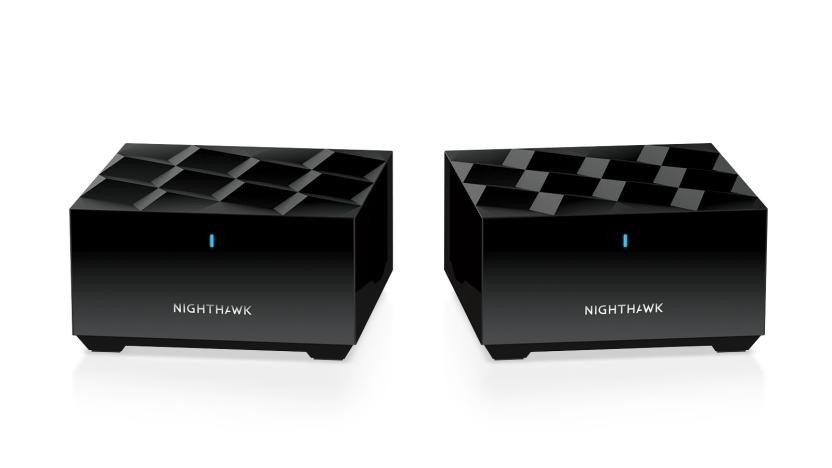
Netgear's Nighthawk WiFi 6 mesh routers aren't crazy expensive
When Netgear introduced its Orbi WiFi 6 mesh router last fall, one of the things that stood out the most was its $700 price tag. Now, Netgear is ready to unveil a more affordable option. At CES this week, it introduced the Nighthawk Mesh WiFi 6 System, a router and satellite kit that will start at $229.99.
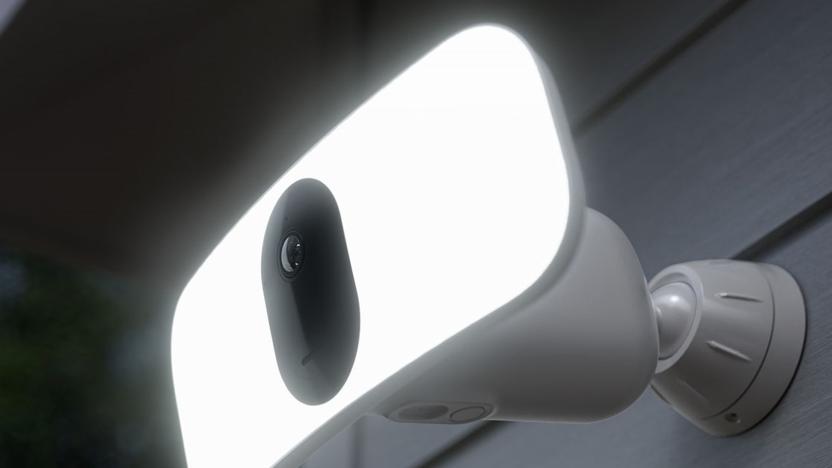
Arlo's new floodlight security camera is completely wireless
Floodlight cameras are helpful for spotting (and ideally, deterring) intruders, but they typically require some kind of wiring. Even Ring's model still requires a link to a floodlight system. Arlo, however, thinks it can one-up its rivals. Its new Arlo Pro 3 Floodlight Camera is billed as the first truly wireless option of its kind -- you can put it where you need it without any messy connections. About the only hassle is having to recharge the battery.
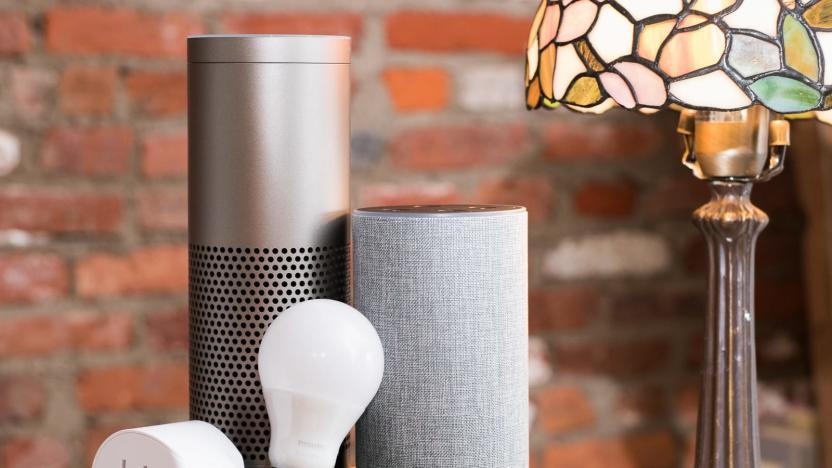
The best Alexa-compatible smart-home devices for Amazon Echo
By Rachel Cericola This post was done in partnership with Wirecutter. When readers choose to buy Wirecutter's independently chosen editorial picks, Wirecutter and Engadget may earn affiliate commission. Read the full guide to Alexa-compatible smart-home devices for Amazon Echo. Imagine walking into your home at night, arms overflowing with groceries. Even if you've installed smart lights, you'd need to put the bags down, pull out your phone, unlock it, open the app, find the control for the lights you want, and then tap the icon—might as well just stick with a plain old wired switch. But with an Alexa, you simply say, "Alexa, turn on the kitchen lights." And it's not just lights; Alexa is capable of controlling everything from basic smart plugs to garage doors. All three smart-speaker platforms (Alexa, Google Assistant, and to a lesser degree, Siri) can control a variety of smart-home devices and add an extra level of convenience to your smart-home system. We think Amazon's Alexa has a slight edge over the others because it works with more devices, and the wider family of Amazon Echo products makes it easier to fit them everyplace in your home. However, if you already have a Google Home speaker, the differences aren't large enough for you to need to switch platforms. We have guides for the best devices to use with Google Assistant and Siri/HomeKit. The Amazon Echo (or Echo Dot) offers a convenient interface for your smart home and provides functionality that an app on your phone can't. If you already have some Alexa-compatible devices or one of the three major smart-home hubs (SmartThings, Wink, or Insteon), adding an Echo can make accessing those devices more interesting and convenient. Taking advantage of its near-instantaneous response time and reliable voice-recognition processing is significantly faster than pulling out your phone and opening an app just to turn the lights on or off. Some products, such as Philips Hue lights and Nest thermostats, have native Alexa support, while others require you to enable a third-party skill. We tested plenty of both varieties to come up with the best-performing and most reliable recommendations, which we're continually testing to ensure that each new firmware and app update meets our high standards. Over the past several years, Wirecutter's editors and writers have tested just about every smart-home device of consequence. As more people end up buying smart speakers and platform support gets more and more important, we wanted to provide one place where you could access all of our picks that are compatible with the devices you already own, across all of our smart-home recommendations. Because these devices receive regular updates with additional compatibility and new features, we are continually testing and reevaluating our picks in our own homes to confirm that they still meet our recommendation standards. We'll update this guide as we learn new information, but be sure to read the full reviews if you'd like more details and test notes. If you don't yet have an Alexa-enabled device, or you want to learn more about what Alexa is and what you can do with these things, check out our full guide to Alexa and Amazon's Echo line of smart speakers.

Netgear's WiFi 6 mesh router comes with a $700 price tag
Netgear made a number of announcements at this year's IFA tech show in Berlin, including details on a new WiFi 6 mesh extender, the first cloud-configurable commercial grade mesh network, and a new router that comes with an eye-watering price tag.
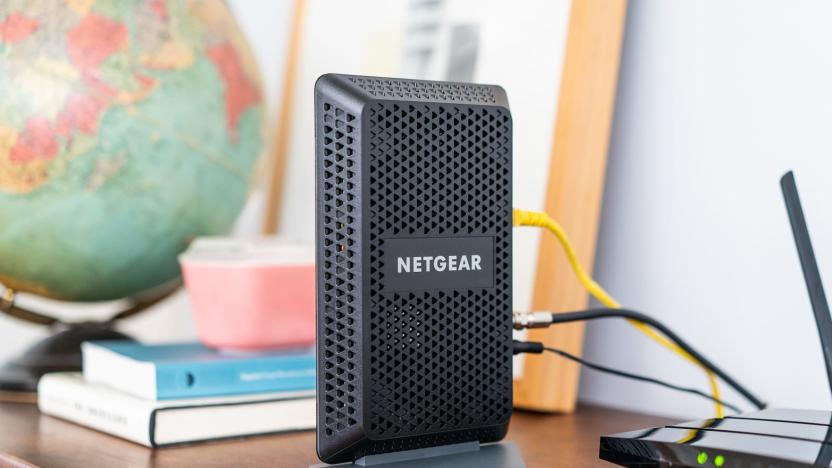
The best cable modem
By Joel Santo Domingo and Thorin Klosowski This post was done in partnership with Wirecutter. When readers choose to buy Wirecutter's independently chosen editorial picks, Wirecutter and Engadget may earn affiliate commission. Read the full guide to cable modems. After researching nearly 100 cable modems over the past five years, we recommend the Netgear CM600 if you have cable Internet and you want to stop paying your Internet service provider a separate modem rental fee. You can recoup the cost of the modem in as little as nine months—and then start saving up to $10 each month. The CM600 is reliable, supports the fastest Internet speeds available to the vast majority of Americans, and it's compatible with just about every non-gigabit plan from every cable Internet service provider in the US—including Comcast Xfinity, Spectrum (formerly Time Warner, Charter, and Bright House), Cox, Suddenlink, Cable One, and WOW—which gives you the flexibility to switch providers if you move or switch ISPs. The CM600 works well for plans up to 600 megabits per second, because it's a DOCSIS 3.0 modem that can handle 24 downstream channels and eight upstream channels. The biggest downside is that, while the CM600 has positive reviews from owners, it comes with only a one-year warranty, while most modems come with a two-year warranty. The Motorola MB7621 is a 24×8 DOCSIS 3.0 modem that supports the same performance levels as the Netgear CM600. The MB7621 is less expensive and comes with a two-year warranty, a year longer than the CM600's coverage. But it doesn't appear on quite as many ISP approved modem lists as the Netgear modems; Cable One, Cox, and Comcast Xfinity all have the MB7621 on their online approved lists, but you'll have to call Spectrum and WOW to make sure it will work on their networks and what speeds it will support. The MB7621 doesn't have quite as large a pool of reviews, but what people have to say is very positive. It's a great choice if your ISP supports it. America's average Internet speeds measure well below 100 Mbps, ranging from the low 20s to figures approaching 70 Mbps, depending on which survey you pick. If your plan is in that range and you don't intend to upgrade beyond 300 Mbps anytime soon, we recommend the Netgear CM500. The CM500 matches the ISP compatibility of the pricier CM600, but its maximum download and upload speeds are lower (300 Mbps on the CM500 versus 600 Mbps on the CM600, though Suddenlink certifies it for 500 Mbps speeds). The CM500 has a good reputation for reliability, but like the CM600 it comes with only a one-year warranty. (We recommend 16×4 modems like the CM500 even if your plan would work with a slower modem, because ISPs are dropping support for 8×4 modems. You'd save barely any money up front and have to replace your modem years earlier, so we don't recommend it.) If you already have a gigabit Internet plan and your ISP allows you to use your own modem, the Motorola MB8600 is the best of the three DOCSIS 3.1 modems that are widely available right now because of its relatively low price and its two-year warranty. Though it's overkill for almost everyone, you'll need a DOCSIS 3.1 modem to guarantee gigabit speeds from most cable ISPs, and the MB8600 is also compatible with gigabit Internet on networks that still use the DOCSIS 3.0 standard, for example Cable One supports both DOCSIS 3.0 (32x8) and DOCSIS 3.1 modems for its GigaOne service. Don't get a gigabit modem unless you already have gigabit service or know it's available. The added expense of the DOCSIS 3.1 modems isn't worth it until you're on one of these new (and pricey) plans—especially since your ISP may roll out gigabit over fiber rather than cable. And they may not even let you bring your own modem once they do roll out gigabit service.
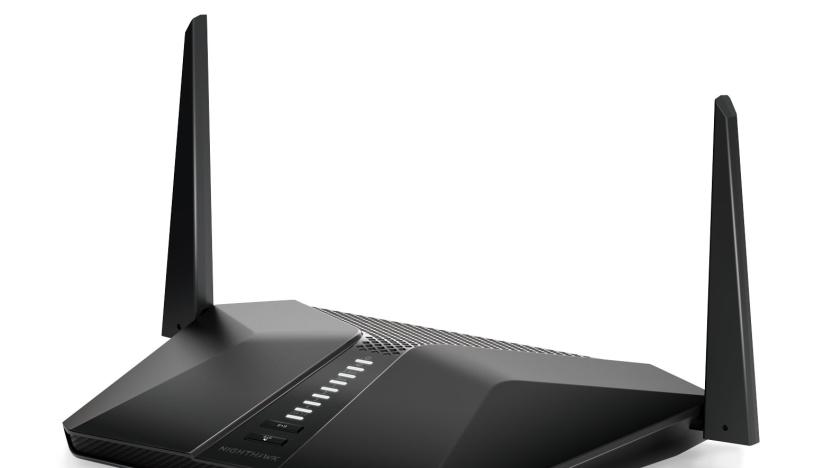
Netgear's latest WiFi 6 router is cheaper, but still costs $200
If your router can't handle your growing number of gadgets, Netgear's latest WiFi 6 router could solve the problem. The freshly-announced Nighthawk AX4 comes in yet another spaceship-like design, and offers dual-band 4-stream WiFi with up to 600 + 2400Mbps speeds -- a generous 3Gbps in total. These are handled by the AX4's dual-core processor plus Intel's WAV600 WiFi chipset, with the latter being notable as this is Intel's first foray into the WiFi 6 router market. As for physical ports, the AX4 comes with five Gigabit Ethernet ports (one WAN and four LAN) plus a USB 3.0 socket.









